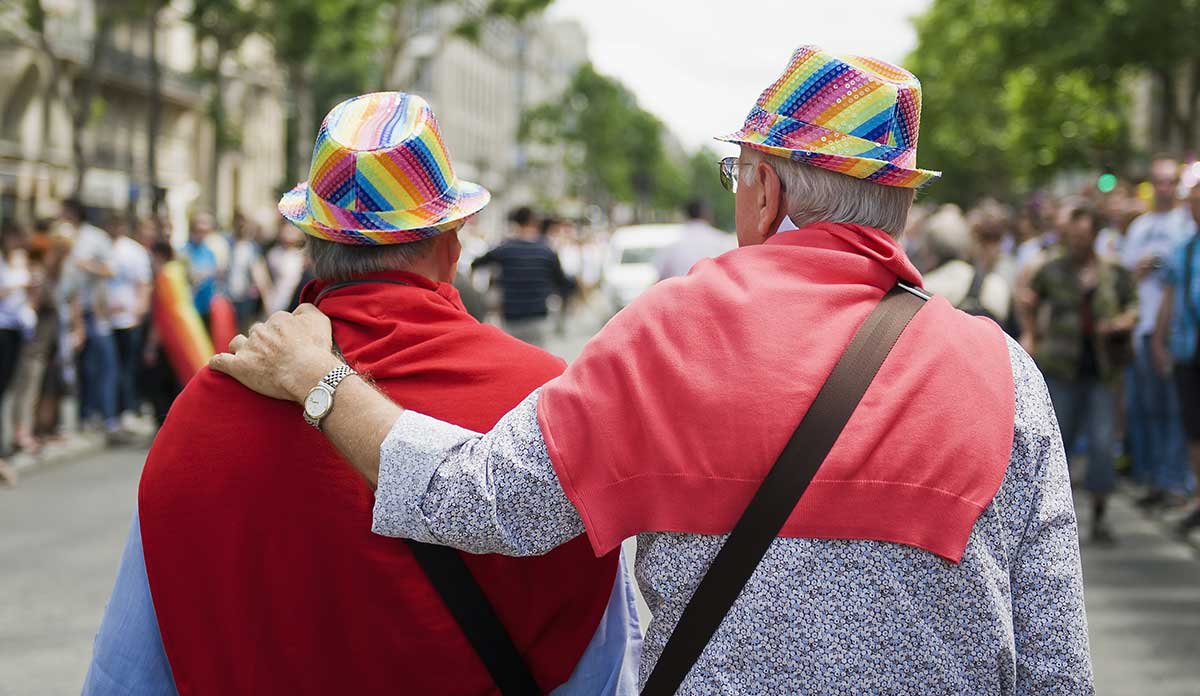To many LGBTQ+ older adults, navigating health care means returning to the closet, hiding their identities and relationships. Captured in the critically acclaimed film Gen Silent, the fear of discrimination among elderly folk exists both in safe LGBTQ+ care spaces, as well as not so supportive environments.
In Massachusetts, Fenway Health’s LGBT Aging Project trains health care providers to address the special health needs of aging LGBTQ+ patients with high-quality and stigma-free services. In November 2017, Lisa Krinsky and Sean R. Cahill published a report assessing the current state of elder services in the state. They found that many care facilities still do not participate in cultural training, citing little need and a belief that they serve few LGBTQ+ patients.
Lisa Krinsky, director of the LGBT Aging Project, thinks there may be some truth to this, that some elder care facilities may not have a prominent LGBTQ+ patient population. Nevertheless, she emphasizes the importance of cultural competency in such care centers because some patients may not openly identify as LGBTQ+. She also argues cultural training will help health care providers and patients examine their biases and assumptions about all their patients.
In 2015, the Massachusetts LGBT Aging Commission published recommendations to better serve aging LGBTQ people in the areas of public health, housing, long term care support, community engagement, and senior services. The Commission is the country’s first statewide Special Legislature unit to work towards creating more discrimination-free spaces for LGBTQ+ elders.
One recommendation encourages standardizing the collection of sexual orientation and gender identity information when conducting surveys and assessing community needs. Some of the other recommendations include partnering with governmental offices such as the state’s Executive Office of Elder Affairs and the Department of Housing and Community Development, as well as local advocacy groups to facilitate change.
“In the next five years, we might see more baby boomers become visible as LGBT older adults. They may not want to go back into the closet to partake in group activities. That’s part of the change that’s taking place.”
Massachusetts was the first U.S. state to legalize gay marriage, so it is particularly striking that so many care facilities have not yet implemented the 2015 recommendations. The report proposes a combination of strategies involving active provider interest in improving conditions for older LGBTQ+ adults. The need for quality health services for LGBTQ+ elders will only increase, so providers need to educate themselves now. As Krinsky points out, “In the next five years, we might see more baby boomers become visible as LGBT older adults. They may not want to go back into the closet to partake in group activities. That’s part of the change that’s taking place.”
She also says that over time, the LGBT Aging Project has been connecting with many grass-roots LGBTQ+ organizations interested in and advocating for inclusive elder care. According to the report, however, few senior centers, assisted living facilities, and nursing homes, have stepped forward to participate in competency trainings.
From a legal perspective, the Commission’s support of the Act Relative to LGBT Awareness Training for Aging Services Providers may help propel its vision for greater inclusivity. This act is addressed by two bills: One demands banning sexual orientation and gender-based discrimination. The other calls for mandated training to prevent such discrimination.
Passing of this act would make Massachusetts one of the few states that legally requires cultural competency training for elder care organizations. California mandates such training, and a 2014 evaluation found that the training encouraged significant positive change in knowledge and attitudes about LGBTQ+ elder folk.
Massachusetts already has a reputation of being first in the nation in supporting LGBTQ+ folk through legislative measures; mandating cultural training will bolster the state’s position as a leader in the movement to better accommodate aging LGBTQ+ people.
Feature image: Andrey Malgin/Shutterstock













